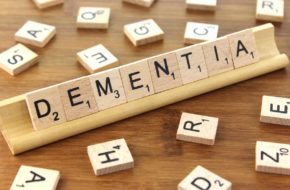I am not a fan of political correctness. We have come far astray of the general knowledge that “sticks and stones….” Moreover, the limitations prompted by overzealous word-watchers can sometimes affect the ability to communicate freely and clearly.
However, I also recognize that while words may not physically injure us, they can hurt and often can rob people of dignity.
For example, I often ask students in a class I teach what is wrong with the phrase “the Alzheimer’s sufferer” or “the wheelchair-bound man.”
Know the answer?
Both phrases define people by a characteristic or condition. It’s far better in these cases to write or say “the man with Alzheimer’s disease” or “the woman who uses a wheelchair.”
In doing so we are not defining the person by a single characteristic—and are affording them the dignity they deserve.
Recently, I wrote an article asking people to support a variety of causes within Diakon. One of those causes is memory care. I used the phrase Alzheimer’s disease once or twice in that brief section, but never used the word dementia.
The person for whom I was writing asked that I downplay the Alzheimer’s phrase and use dementia more prominently. Why? Because Alzheimer’s, she indicated, was just one type of dementia and we wanted to cover the topic more broadly.
She was right about one thing. And “wrong,” I believe, about another.
She was right that Alzheimer’s disease is a form of dementia. It is the most common type of the memory-related illnesses grouped under the medical diagnosis of dementia, a term that also encompasses vascular dementia, Creutzfeldt-Jakob disease and other conditions.
She was wrong, I would argue (and I did), that the use of the word dementia was better.
I agreed that we wanted the article to encompass memory concerns beyond Alzheimer’s disease, but would not agree to use dementia. In fact, I have edited out that word every time someone uses it in their writing.
I prefer the phrase “memory-related illnesses.”
For some reason, I find the word dementia pejorative, a term that negatively characterizes a person, that rings harsher than it should.
I discovered, in trying to buttress my point, that I am not alone.
There are a number of articles online, including one on a webpage that is part of the National Institutes of Health—that propose abandoning, at least in popular writing, the term dementia—which originated from the Latin word “demens,” originally describing “madness”—in favor of various other words or phrases such as cognitive impairment.
Or, I would add to that list, at least for public-focused writing, memory-related illnesses.
There is no question these diseases are harsh. I just think the way we refer to them need not seem that way as well.
What are your thoughts?
By William Swanger
Senior Vice President
Corporate Communications & Public Relations
Because we review comments, they do not appear immediately. Please do not submit each comment more than once. Please review our comment policy.




